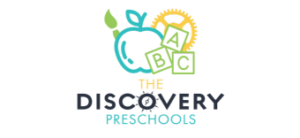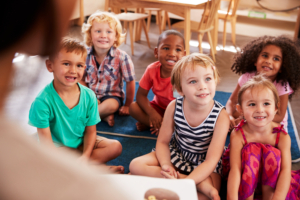Preschool in Newtown & Warrington, PA | The Discovery Preschools
Choosing the right preschool for your child is a vital decision. With the myriad of options available in Newtown & Warrington, PA, finding the perfect fit can be overwhelming. But don’t worry! The Discovery Preschools offer an exceptional private school preschool experience that nurtures and encourages children for future success.
How to Select the Right Private Preschool For Your Little One
- Quality of Teachers: The backbone of any great preschool classroom is its teachers. At The Discovery Preschools, our qualified and passionate teachers make learning fun and engaging. Want to meet the staff? They’re just a click away!
- Curriculum: A comprehensive curriculum is a must. Our preschool programs focus on early childhood development, incorporating elements that enhance child development, social skills, and hands-on learning experiences.
- Environment: A safe and nurturing environment is paramount. Here, kids get the chance to interact with other children, developing vital social and interpersonal skills in a secure environment. Moreover, our location makes us easily accessible to families in the area.
- Programs: We offer a range of preschool programs tailored to different age groups. Whether your little one is at preschool age or preparing for kindergarten, there’s a program just right for them.
- Community Involvement: Schools that are integral parts of the community often provide better experiences for children.
An Exclusive Preschool Education Catered to the Needs of Your Child
At The Discovery Preschools, we understand that every child is unique. This is why our preschool classes are designed to focus on individual growth, helping children grow at their own pace. Our holistic approach encompasses physical, cognitive, and emotional aspects, ensuring a rounded and fulfilling preschool experience. Our aim is not just to be the best preschool in Newtown, PA but to truly make a difference in the lives of our students.
Read More
The Discovery Preschools: Your Partner in Education
Education is a partnership. It’s about collaboration between teachers, parents, and the community. The Discovery Preschools is proud to be a part of the community, playing a pivotal role in shaping the early childhood years of countless children.
We pride ourselves in our commitment to child safety, ensuring that our facilities are up to date with the latest safety standards. Furthermore, our position as a reputable private preschool means that we bring a wealth of knowledge and resources to the table.
Stepping stones such as building relationships, learning to play and share, understanding the world, and developing a sense of community are crucial in these formative years. Our dedicated teachers ensure that these core values are instilled in our students every day.
Looking Ahead: Preparing for the Future
As children transition from preschool to higher education, they carry the lessons, values, and friendships formed during their time at The Discovery Preschools. With us, it’s not just about the here and now but about laying a strong foundation for the future.
Let’s Begin This Journey Together
There’s a world of discovery awaiting your child at The Discovery Preschools. Encourage children to thrive in an environment that promotes learning, friendship, and growth. Don’t miss out on this golden opportunity! Schedule a tour, dive deep into our curriculum, and when you’re ready, enroll now to embark on this enlightening journey with us. Let’s shape the future, one child at a time.
FAQ
What should a preschool classroom have?
A preschool classroom is more than just a room with chairs and tables. It’s a dynamic space designed to foster learning, creativity, and exploration for young minds. A well-equipped preschool classroom should have:
- Interactive Learning Zones: Areas designated for specific activities, such as a reading nook, an art station, or a science corner.
- Safety Features: Given the curiosity of preschool-age children, it’s essential that the environment is child-proofed with non-toxic materials, safe furniture, and secure storage areas.
Age-appropriate Furniture: Tables, chairs, and shelves should be of the right height and size for little learners.
Educational Toys and Tools: Items like puzzles, building blocks, and counting beads that not only entertain but also teach critical skills. - Outdoor Play Area: Physical activity is crucial at this age. An outdoor space with safe play equipment promotes physical health and social skills.
Visual Aids: Charts, posters, and other visual aids that cater to the visual learning style common in children. - Hands-on Learning Materials: Things like clay, coloring materials, and craft supplies that encourage creativity and fine motor skill development.
- Diverse Books: A collection that reflects various cultures, stories, and information to foster early literacy and inclusivity.
Incorporating these elements ensures a conducive environment for child development and active learning in the preschool classroom.
What are the pros and cons of enrolling a child in preschool?
Pros:
-
- Social Skills Development: Preschool provides children with the opportunity to interact with peers, teaching them valuable lessons in sharing, communication, and collaboration.
- Foundation for Academic Skills: Early exposure to numbers, letters, and basic science concepts prepares children for future academic endeavors.
- Emotional Growth: Children learn about feelings, empathy, and managing emotions in a safe environment.
- Structured Routine: A structured day with set activities helps children understand time-management and discipline.
- Independence: Preschool teaches children to manage small tasks on their own, fostering self-reliance.
Cons:
- Cost: Preschool, especially private preschool, can be expensive, potentially straining family finances.
- Adjustment Period: Some children might find it challenging to adjust to a new environment away from home, leading to separation anxiety.
- Potential Exposure to Illness: With many children in close proximity, there’s a chance of more frequent colds or illnesses.
- Varied Quality: Not all preschools offer the same level of education and care, requiring careful research from parents.
- Too Early Pressure: If not chosen wisely, some preschools might exert undue academic pressure on children.
Considering these pros and cons can help parents make an informed decision about preschool enrollment.
What is the best age to start preschool?
The best age to start preschool often varies based on individual children and their readiness. However, most children begin preschool between the ages of 3 and 4. At this age, many children have developed basic social skills, can communicate their needs, and are curious about learning. It’s also a time when they are usually potty-trained, a common requirement for many preschools. That said, parents should consider their child’s emotional, physical, and cognitive development when deciding on the right age for preschool.
What skills are taught in pre-K?
Pre-K is a foundational year for children, and the skills taught often set the stage for future learning. In pre-K, children are introduced to:
- Literacy Skills: Recognizing letters, basic phonics, and cultivating a love for reading.
- Numeracy Skills: Understanding numbers, basic counting, and recognizing patterns.
- Fine Motor Skills: Activities like drawing, cutting, or bead threading to improve hand-eye coordination.
- Social and Emotional Skills: Sharing, taking turns, recognizing emotions, and developing empathy.
- Cognitive Skills: Basic problem-solving, understanding cause and effect, and memory games.
- Physical Skills: Activities to improve gross motor skills, such as jumping, running, or balancing.
- Cultural Awareness: Exposure to different cultures, traditions, and festivals to develop a sense of inclusivity.
- Science and Environment: Simple experiments and nature activities to foster curiosity about the world.
By focusing on these areas, pre-K ensures a holistic development of children, preparing them for the academic and social challenges ahead.

